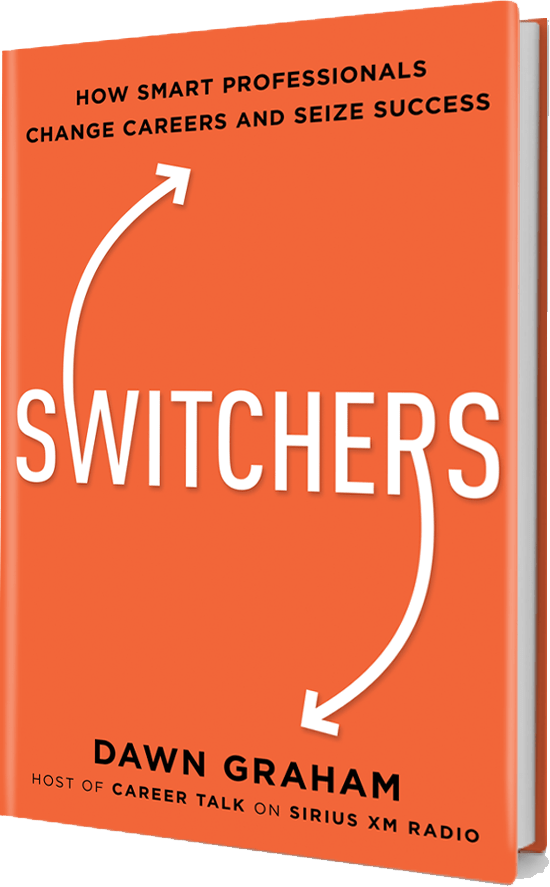5 Things Every Career Switcher Should Know in 2019
Finding a new job is tough. Making a complete career change from one field to another is even tougher, and it will take some serious skill to achieve. But it IS possible to switch careers, and you can set yourself up for success early by avoiding common mistakes many applicants make. To get you started, Dr. Dawn Graham, career expert and author of the book Switchers: How Smart Professionals Change Careers and Seize Success, shares five things you don't want to get wrong to land the job you want this year.

1. Relying on traditional job search advice won't work in 2019
Traditional career books emphasize the importance of using keywords on a resume so you're selected by applicant tracking systems for an interview after applying online. However, applying online isn’t typically effective. You must begin with re-branding, not just with your resume, but extending to every aspect of your professional identity. Switchers seem inherently risky to hirers, as they have a steeper learning curve, so everything you do needs to account for this reality.
2. A new degree or certification may not be your first step
The first question I usually get from a career switcher is, “Should I return to school?” Unless you’re switching to a field like nursing or law, which require specific degrees and licensing, it shouldn’t be a first step. Many overestimate the value of graduate degrees when it comes to switching careers. While people will pay attention to you and it will expand your network, you still need to prove you’re worth the risk as a nontraditional candidate. Assess the return on investment that your valuable time and money will earn. If you’re already enrolled in a degree program, great! You can start applying the strategies in the book early. You'll have some advantages, but you can't skip steps and expect to land your switch.
3. Don't ignore your network
A career switch is a major goal, and you'll only succeed if you activate your network. Many accomplished executives shy away from networking when making a switch. Why? Some haven’t searched for a job since college and think applying online is still the standard way to find employment. Others don’t know how to mobilize their networks. Many don’t network because they feel a bit vulnerable due to their lack of direct experience in the new field. Don’t let ego prevent you from asking for help. Chapter 8 of the book Switchers details strategies for getting past the common networking hurdles that arise from that naysaying voice in your head.
4. Know and neutralize your red flags
Every job seeker raises some red flags for hiring managers. It could be a gap between jobs, a layoff, or too many short stints. Fair or not, hirers look for red flags, so they can quickly narrow the list of applicants—and being a career switcher is a major red flag. Even if you gain access through a trusted referral, it’s important to anticipate potential objections to your skills, fit, or motivation that may arise. Have genuine, logical responses ready to go. Chapters 5, 10, and 11 of the book Switchers discuss how to handle your red flags in a hiring situation.
5. Never disregard supply and demand
Assessing the supply and demand for your target job is critical, but even non-switchers sometimes skip this step. Don’t make the mistake of neglecting to research the market before proceeding, especially into an unfamiliar industry or function. Remember, the further you stray from a traditional career trajectory, the harder it is to switch. So do your homework, research the market, and craft realistic goals based on what you learn.
Land your dream job this year with more insight from Switchers by Dr. Dawn Graham.

Switchers: How Smart Professionals Change Careers and Achieve Success
by Dr. Dawn Graham
